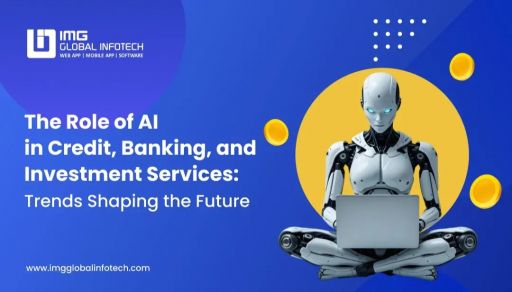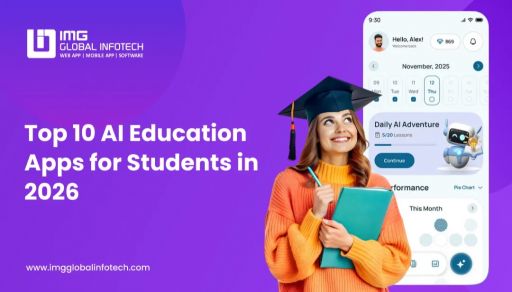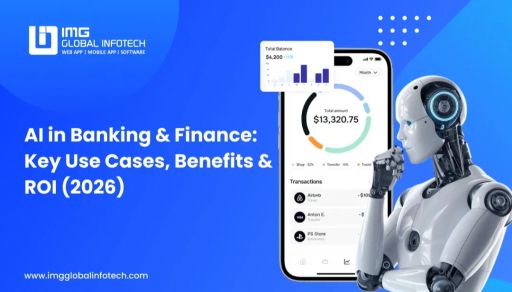Best Generative AI Tools And Platforms In 2026
Neeraj Rajput
Jul 02, 2025

In just a few years, Generative AI has moved from the realm of research labs into the hands of everyday creators, businesses, and developers. From designing stunning visuals and composing music to drafting high-quality content and writing clean code, generative AI tools are reshaping how we think about productivity and creativity.
What makes generative AI truly groundbreaking is its ability to produce original content from simple prompts. These generative tools aren't just helping users do more; they're redefining what's possible in industries like marketing, software development, education, entertainment, and beyond.
In this blog, we’ll explore the best generative AI tools available in 2026, highlighting their core features, real-world applications, and how they compare. Whether you're a startup founder, content creator, or enterprise leader, this guide will help you choose the right AI tool to elevate your work and unlock new possibilities.
What Are Generative AI Tools?
Generative AI tools are advanced software applications powered by artificial intelligence that can create new, original content, such as text, images, music, videos, or code based on the input or prompts given by a user. Unlike traditional software that follows predefined rules or logic, generative AI learns patterns from vast datasets and uses that knowledge to generate content that copy human creativity.
These tools use deep learning models, particularly Generative Adversarial Networks (GANs), transformers, and Large Language Models (LLMs), to produce realistic and meaningful outputs. What makes these AI tools valuable is not just their ability to generate content, but their ability to understand context, style, tone, and intent, making them useful across a wide range of industries and professions.They can also be combined with a content creation template to streamline structured output and maintain consistency across materials.
Generative AI vs AI
Artificial Intelligence (AI) is a broad field focused on creating machines that can simulate human intelligence, such as learning, problem-solving, and decision-making. Generative AI is a specific subset of AI designed to create new content.
Traditional AI might help a system recognize faces, detect fraud, or recommend products, but generative AI goes a step further by producing original outputs like text, images, music, or code. For example, a standard AI model might analyze data and classify it, whereas a generative AI tool can write a story, generate artwork, or build a chatbot script.
Key Applications of Generative AI Platforms

Generative AI platforms are making a profound impact across a wide range of industries by enabling users to create content faster, smarter, and at scale. Here are some of the most popular AI applications:
1. Content Generation
Generative AI platform is widely used to write blogs, articles, emails, product descriptions, social media posts, and more. Tools like ChatGPT and Jasper AI help marketers and writers produce engaging content in seconds.
2. Image and Art Creation
AI art platforms like DALL·E, Midjourney, and Adobe Firefly allow users to create high-quality images, artwork, and designs from simple text prompts, ideal for marketing, branding, and creative projects.
3. Video Generation and Editing
AI video generation tools such as Runway ML and Synthesia empower users to generate AI-driven videos, deep fakes, and virtual presenters without traditional filming or animation costs.
4. Code Generation
Developers are increasingly using AI code generation tools like GitHub Copilot to auto-complete code, suggest functions, or even generate full modules based on comments or natural language instructions.
5. Music and Audio Synthesis
Generative AI tools like AIVA and Soundraw compose background music, generate voiceovers, or create sound effects, supporting content creators, game developers, and podcasters.
6. Chatbots and Virtual Assistants
AI-powered conversational platforms like ChatGPT, Claude, and Meta AI are used in customer service, education, and sales to deliver intelligent, natural-sounding conversations.
7. Data Augmentation and Simulation
In fields like healthcare, finance, and robotics, AI generative tools helps simulate data for training models, test scenarios, and improve machine learning accuracy when real data is limited.
>>>Also Read: Top AI Development Companies In USA
Top 15+ Generative AI Tools to Know

1. GPT-4 (OpenAI)
GPT-4 is the most advanced language model in OpenAI’s Generative Pre-trained Transformer (GPT) series, setting a new benchmark for natural language understanding and generation. Designed to process, comprehend, and generate human-like text, GPT-4 has become an indispensable tool for content creators, enterprises, educators, and developers alike.
Its understanding of industry-specific language and tone gives users the ability to produce text that is equal to human text, across multiple domains and languages. Beyond content creation, GPT-4 is widely adopted in business applications like AI assistants, code generation, data analysis, translation, tutoring, and more.
Key Features:
-
100+ Trillion Parameters
-
Enhanced Factual Accuracy
-
Multilingual Mastery
-
Human-Level Performance
-
Greater Steerability
2. DALL·E 3 (OpenAI)
DALL·E 3 is OpenAI’s state-of-the-art image generation AI model that turns text prompts into highly detailed, realistic, and artistic images. It's a game-changer for designers, marketers, and content creators who need compelling visuals without hiring a designer or using stock photos.
Unlike earlier versions, DALL·E 3 understands nuanced prompts better, maintains object coherence (like correct hands or faces), and can accurately generate images with text. It’s seamlessly integrated into ChatGPT, making it easy for users to interact with the tool through natural conversation.
Key Features:
-
High-resolution image generation
-
Detailed understanding of complex prompts
-
Image editing & inpainting
-
Integrated with ChatGPT and Microsoft products
-
Great for illustrations, concept art, product design
3. Midjourney
Midjourney is an independent research lab that has gained huge popularity for its AI-powered image generation tool. Known for producing visually stunning, stylized, and often surreal artworks, Midjourney excels in creative experimentation and mood board generation.
It's especially favored by digital artists, NFT creators, game developers, and anyone in need of unique, expressive visuals. Midjourney runs primarily on Discord, making it community-driven and collaborative.
Key Features:
-
Artistic and imaginative image generation
-
Fine-tuned control via prompt engineering
-
Community support via Discord
-
Fast rendering and upscale options
-
Ideal for concept art, album covers, digital posters
4. Jasper AI
Jasper AI is an AI text generation tool for writing assistant tailored for marketers, entrepreneurs, and agencies. It helps users create SEO-optimized content for blogs, landing pages, email campaigns, social media, and ad copy with ease.
With multiple templates and tone-of-voice settings, Jasper speeds up content creation while maintaining consistency and brand personality. It also offers team collaboration features and integrates with platforms like SurferSEO and Grammarly.
Key Features:
-
50+ copywriting templates
-
Brand voice customization
-
Long-form and short-form content support
-
Plagiarism checker & grammar suggestions
-
Multilingual support
5. Runway ML
Runway ML is a generative AI platform that enables users to generate, edit, and transform video content using generative models. With its Gen-2 model, it introduced one of the first text-to-video solutions on the market, along with tools for green screen removal, motion tracking, and inpainting.
It’s a favorite among filmmakers, content creators, ad agencies, and educators looking to elevate video production with minimal effort and cost.
Key Features:
-
Text-to-video generation (Gen-2)
-
AI-powered video editing
-
Real-time collaboration
-
Cloud-based interface
-
Supports animation, VFX, and cinematic storytelling
6. Synthesia
Synthesia allows you to create studio-quality videos using AI avatars and voiceovers from just text input. It eliminates the need for actors, studios, and long editing cycles—making it ideal for internal training, explainer videos, and marketing presentations.
Users can choose from 100+ avatars or create a custom one to represent their brand. It supports over 120 languages, making global content production accessible and scalable.
Key Features:
-
AI avatars and voiceovers
-
Text-to-video in minutes
-
Avatar customization
-
Supports 120+ languages
-
Easy editing via drag-and-drop interface
7. GitHub Copilot
GitHub Copilot is an AI code generation tool that suggests code snippets, functions, and even entire modules directly within your IDE. Powered by OpenAI’s Codex model, it understands programming context, helps reduce boilerplate coding, and speeds up mobile app development.
It supports a wide range of programming languages and is especially helpful for repetitive coding tasks, documentation, and onboarding junior developers.
Key Features:
-
Real-time code suggestions
-
Works in VS Code, JetBrains, Neovim, and more
-
Supports Python, JavaScript, TypeScript, Go, Ruby, and more
-
Context-aware suggestions
-
Speeds up coding and reduces errors
8. Adobe Firefly
Adobe Firefly is Adobe’s powerful generative AI engine, seamlessly integrated into Creative Cloud tools like Photoshop, Illustrator, and Express. Designed specifically for creators and designers, Firefly allows users to generate images, text effects, and design elements from natural language prompts.
What sets Firefly apart is its commercial-use licensing, ensuring that AI generated content is safe for brand use. It’s built with Adobe’s vast creative dataset and prioritizes ethical AI usage.
Key Features:
-
AI-generated text effects and design assets
-
Integrated into Adobe tools (Photoshop, Illustrator)
-
Commercially safe output
-
Intuitive UI for non-tech users
-
Style-matching and brand consistency tools
>>>Also Read:- Popular AI Development Frameworks
9. ElevenLabs
ElevenLabs is a leading AI voice synthesis platform known for creating hyper-realistic, emotionally rich voiceovers in multiple languages and accents. Content creators, audiobook publishers, podcasters, and game developers use ElevenLabs to generate lifelike narration without the need for human voice actors.
It also allows users to clone their own voice or build custom AI voices for brand representation or character AI development.
Key Features:
-
High-fidelity voice generation
-
Voice cloning capabilities
-
Supports 20+ languages and accents
-
Emotion control (tone, pace, emphasis)
-
Great for audiobooks, podcasts, games, and YouTube videos
10. Claude (Anthropic)
Claude by Anthropic is an advanced conversational AI platform known for its safety, transparency, and high-quality outputs. It focuses on being helpful, honest, and harmless, making it a preferred option for businesses seeking ethically aligned AI interactions.
Claude is great for writing, answering questions, summarizing long texts, tutoring, and engaging in meaningful, controlled dialogue across various knowledge domains.
Key Features:
-
Context-aware, safe conversational AI
-
Built on Constitutional AI principles
-
Strong performance in writing and summarization
-
Handles long-form conversations with memory
-
Business-ready API and team collaboration support
11. Lumen5
Lumen5 is an AI video creation tool that converts blog posts, scripts, or articles into engaging videos for social media and marketing. Using natural language understanding, it extracts key points, selects visuals, and creates videos with text overlays, transitions, and stock footage—all in minutes.
It’s designed for non-editors, making video content production fast, affordable, and scalable.
Key Features:
-
Text-to-video generation
-
Drag-and-drop video editor
-
Brand templates and automation
-
Stock footage and music library
-
Ideal for social media marketers, bloggers, and educators
12. AIVA (Artificial Intelligence Virtual Artist)
AIVA is a generative music composition platform that creates original soundtracks for videos, games, ads, and personal projects. It’s especially helpful for creators who need royalty-free background music tailored to specific moods or genres.
AIVA supports music theory and lets users edit the generated compositions using MIDI, making it a favorite for both hobbyists and professional musicians.
Key Features:
-
AI-generated music compositions
-
Genre and mood customization
-
MIDI editing support
-
Royalty-free music licensing
-
Suitable for films, ads, games, and content creators
13. Replit Ghostwriter
Replit Ghostwriter is an AI-powered code assistant embedded in Replit’s online IDE. It helps developers write, explain, and debug code in real time. It’s especially popular among students, solo devs, and startups looking for a collaborative and fast cloud-based development environment.
Ghostwriter supports pair programming, turning pseudocode or natural language into working code snippets instantly.
Key Features:
-
Code autocompletion and suggestions
-
Natural language to code generation
-
In-browser IDE with collaboration tools
-
Debugging and code explanation
-
Supports over 50 languages
14. Descript
Descript is a next-gen audio and video editing platform powered by AI. It transcribes media files in real-time and lets you edit video/audio just like a text document. It also includes voice cloning, AI-powered cleanup tools, and screen recording capabilities.
Descript is especially popular among podcasters, YouTubers, educators, and remote teams producing training content.
Key Features:
-
Text-based audio/video editing
-
Overdub (voice cloning)
-
Screen recording and publishing
-
Filler word removal & auto transcription
-
Podcasting, vlogging, and tutorial-ready
15. Notion AI
Notion AI enhances the popular productivity and note-taking app with built-in AI writing and research features. It helps users summarize notes, brainstorm ideas, auto-generate content, fix grammar, and transform messy inputs into structured documents.
For professionals managing wikis, task lists, meeting notes, or marketing plans, Notion AI is a major productivity boost.
Key Features:
-
Summarization, writing, and editing tools
-
Seamless integration with Notion workspace
-
Idea generation and task planning
-
Multi-language support
-
Ideal for teams, project managers, and knowledge workers
16. Viggle AI
Viggle AI is an AI-powered video creation platform focused on motion-driven content and face swap videos. It allows users to turn static images into dynamic videos using AI-based animation, motion transfer, and trending video templates, making it especially popular for short-form and social media content.
Rather than relying on traditional video editing timelines, Viggle AI simplifies the process by letting creators upload an image, select a motion or template, and generate engaging video content in seconds. This makes it a strong choice for creators and marketers looking to experiment quickly without complex production workflows.
Key Features:
AI-powered image-to-video animation
Motion transfer and face swap capabilities
Pre-built templates for trends, memes, and short-form videos
Beginner-friendly, no editing experience required
Optimized for platforms like TikTok, Reels, and Shorts
The Future of Generative AI Tools
The future of Generative AI tools is transformational. As these technologies evolve, they are set to redefine how we work, create, and interact with digital content. From automating routine business tasks to enhancing human creativity, generative AI platforms are quickly becoming a central part of innovation across industries.
One of the most exciting developments on the horizon is multimodal AI tools that can understand and generate content across text, images, video, and audio simultaneously. Imagine writing a prompt that results in a fully designed web page, complete with text, visuals, animations, and even background music, all created by AI in real time.
We can also expect greater personalization and contextual awareness. Future generative AI models will adapt more deeply to individual user preferences, tones, industries, and use cases, making outputs feel less generic and more human. At the same time, ethical AI development company will gain more focus, with tools designed to prevent misuse, reduce bias, and provide transparent outputs.
From real-time content generation to smart digital assistants that understand emotions and intent, generative AI is evolving from a creative aid to a collaborative partner.
>>>Also Read: AI Mobile App Development Guide
Conclusion
As we step deeper into the age of AI, generative tools have become essential digital companions, reshaping everything from content creation and design to software development and video production. The tools highlighted in this blog represent the best of what's available in 2026, offering advanced capabilities that were once only imagined.
Whether you're a startup founder looking to build smarter workflows, a content creator aiming for speed and scale, or an enterprise focused on automation and personalization, the right generative AI tool can give you a serious edge. But as powerful as these tools are, they work best when paired with human creativity, strategy, and intent.
By staying informed and experimenting with these platforms, businesses and individuals can unlock new levels of productivity, innovation, and impact in the digital world.
-
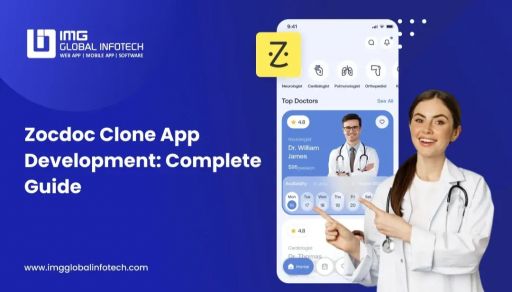 Zocdoc Clone App Development: Complete Guide
Zocdoc Clone App Development: Complete Guide
-
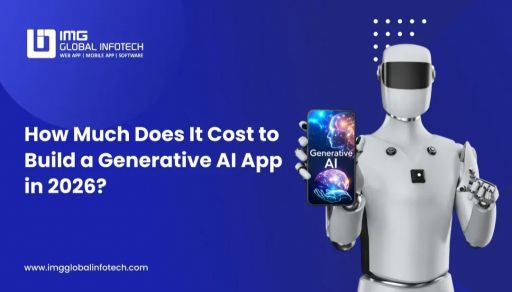 How Much Does It Cost to Develop a Generative AI App? (2026 Guide)
How Much Does It Cost to Develop a Generative AI App? (2026 Guide)
-
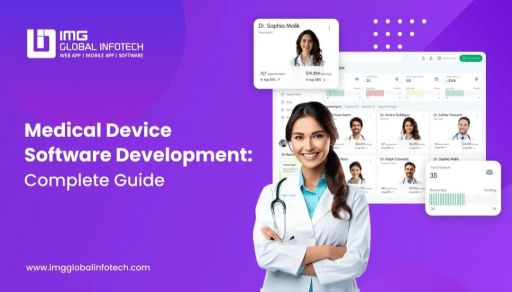 Medical Device Software Development: Complete Guide
Medical Device Software Development: Complete Guide
-
 Top 10 Healthcare app development companies in India 2026
Top 10 Healthcare app development companies in India 2026
-
 Flutter for MVP Development: The Fastest Way to Build MVPs in 2026
Flutter for MVP Development: The Fastest Way to Build MVPs in 2026
-
 Healthcare App Development Cost 2026: Complete Breakdown
Healthcare App Development Cost 2026: Complete Breakdown
Neeraj Rajput is the co-founder of a leading IT company with over a decade of experience in technology consulting, product development, and digital transformation. With a passion for solving complex business challenges through smart tech solutions, he shares insights on innovation, leadership, and the evolving IT landscape



